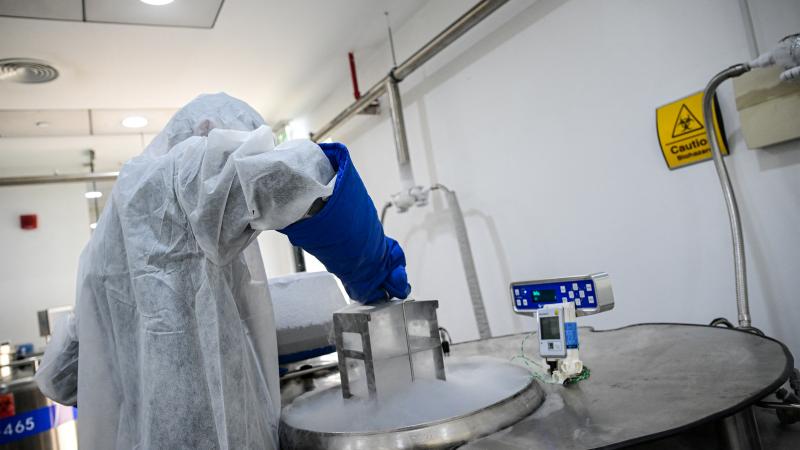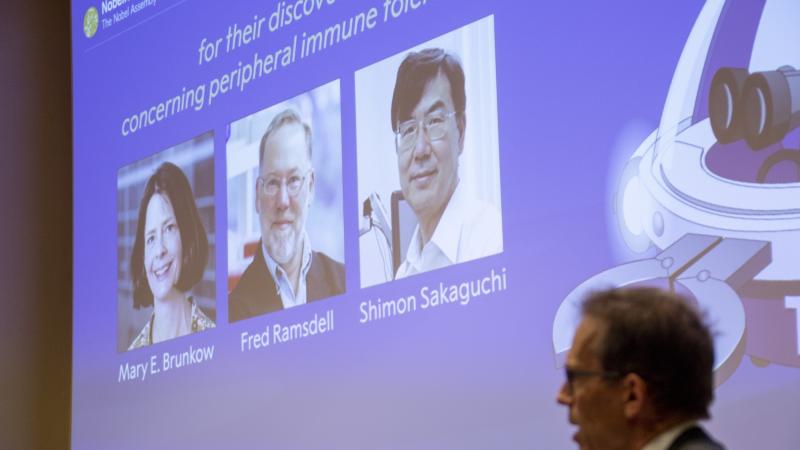American female scientist shares Nobel chemistry prize, for work on cure for inherited diseases
The woman developed a method to edit DNA with extreme precision.
A U.S. and French woman were on Wednesday awarded with the Nobel Prize in Chemistry for their research and breakthrough in editing genes, likened to "molecular scissors" that could one day offer a cure to inherited diseases.
Frenchwoman Emmanuelle Charpentier and American Jennifer A. Doudna worked together from different parts of the world during their 2012 discovery. They developed a method known as CRISPR-cas9 that can be used to change the DNA of animals, plants and microorganisms with extremely high precision.
It allows for laser-sharp snips in the long strings of DNA that make up the "code of life," enabling scientists to precisely modify specific genes to remove errors that lead to diseases.
Nobel Prizes are often awarded decades later, making their win fairly recent.
"I wish that this will provide a positive message to young girls who would like to follow the path of science," Charpentier said.
Claes Gustafsson, the chairperson of the Nobel Committee for Chemistry, said: "There is enormous power in this genetic tool, which affects us all. It has not only revolutionized basic science, but also resulted in innovative crops and will lead to groundbreaking new medical treatments."
Gustafsson also warned that this technological breakthrough must be used with "great care."
Ethical concerns do exist and scientists must use caution. When a Chinese scientist engineered the first gene-edited babies in 2018, he was sentenced to three years in prison.
"My greatest hope is that it's used for good, to uncover new mysteries in biology and to benefit humankind," Doudna said.















